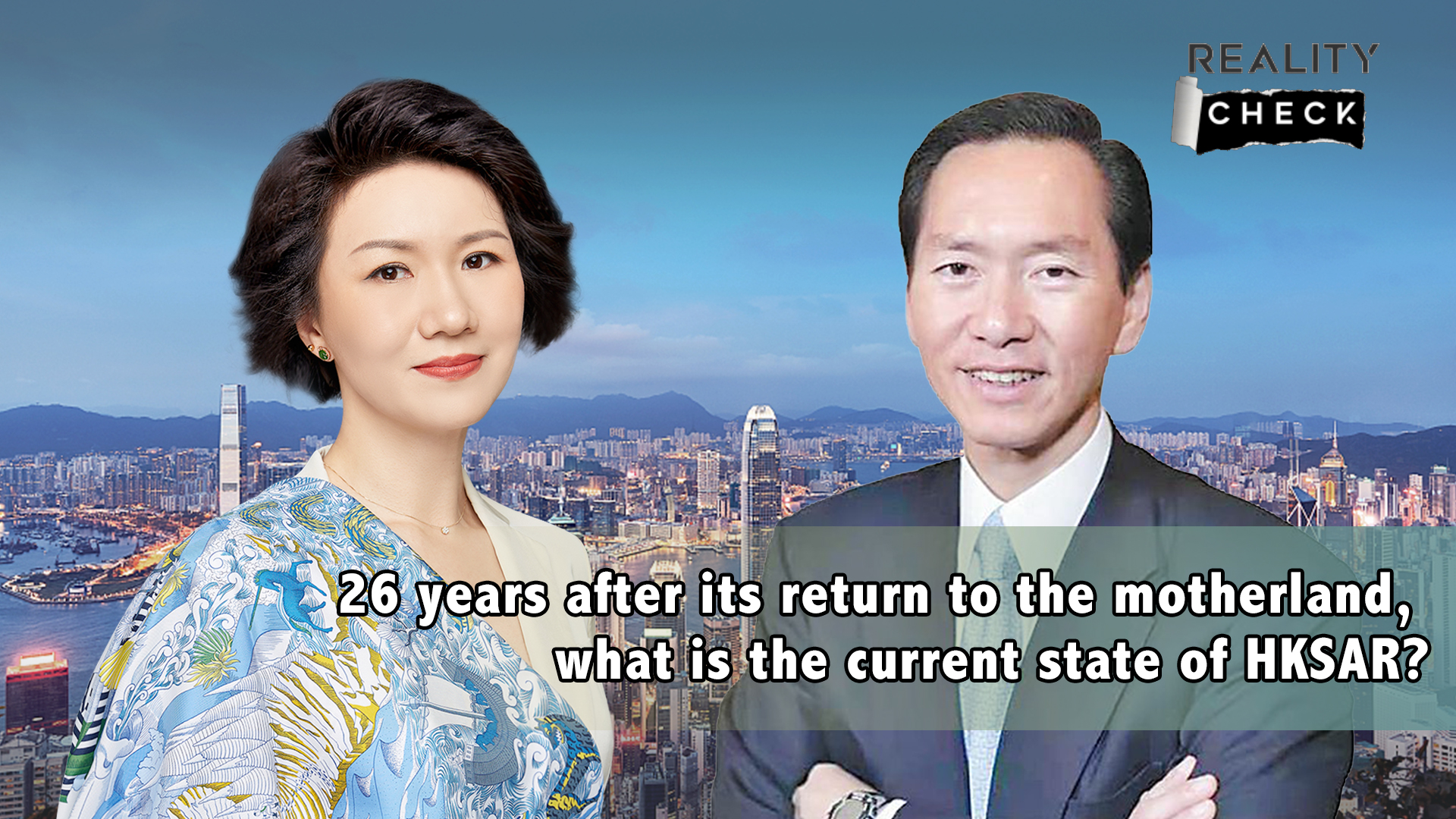02:48

26 years after HKSAR's return to the motherland, how's the city doing now? Bernard Chan shares the National Security Law has restored HKSAR's stability following the turbulence in 2019. But challenges still lie ahead, such as talent retention & the U.S.'s "de-risking" measures.
Bernard Chan: We have a somewhat of a crisis, and the crisis is all about retaining or attracting new talents. In fact, this is not just a challenge for Hong Kong. It's happening in many countries, in many cities.
These days you can work in different places. You don't even have to be physically in one location to work. But the most important thing is where they're going to put their family.
So, for global talent, the first thing before, apart from the job itself, is where they put the family and the number one consideration to decide where they put a family is whether the place is safe. The city or the country being safe is a number one priority for them.
The next thing of course, is educations, arts and cultures, health care and so on. These are the other things. So, a city being safe is so important and today this is, after all these talks about freedom and so on, at the end of the day, Hong Kong remained a very safe city.
Apart from that, a couple of months during 2019 were really freak out everyone. I'm born and raised in Hong Kong. I've never seen anything like that during that period of time. I'm in finance, my office is in this downtown of the financial district. I couldn't even get out during lunchtime maybe that there were protests and usually these protests turned violent.
That was the period of time that I think when people are very concerned. When you're talking about people want to do business in a city that you can't be when there's no law and order. That was a crazy few months. So, the National Security Law helped to restore the law and order in Hong Kong.
But I do agree, though, we still have a lot of challenges. Talent retention is a huge challenge, and we still have other problems, the economy. And more importantly, I think the number one crisis that we also have to address now is this geopolitical tension between the U.S. and China. And largely because the U.S. is imposing all types of sanctions towards us.
And that actually creates a problem as the U.S. administrator kept repeating this message of de-risking, so companies are, especially U.S. companies are slowing down, or they are spreading the risk and not putting that in Chinese mainland or Hong Kong. So, we are facing those challenges as well, that is being imposed on us by the U.S.